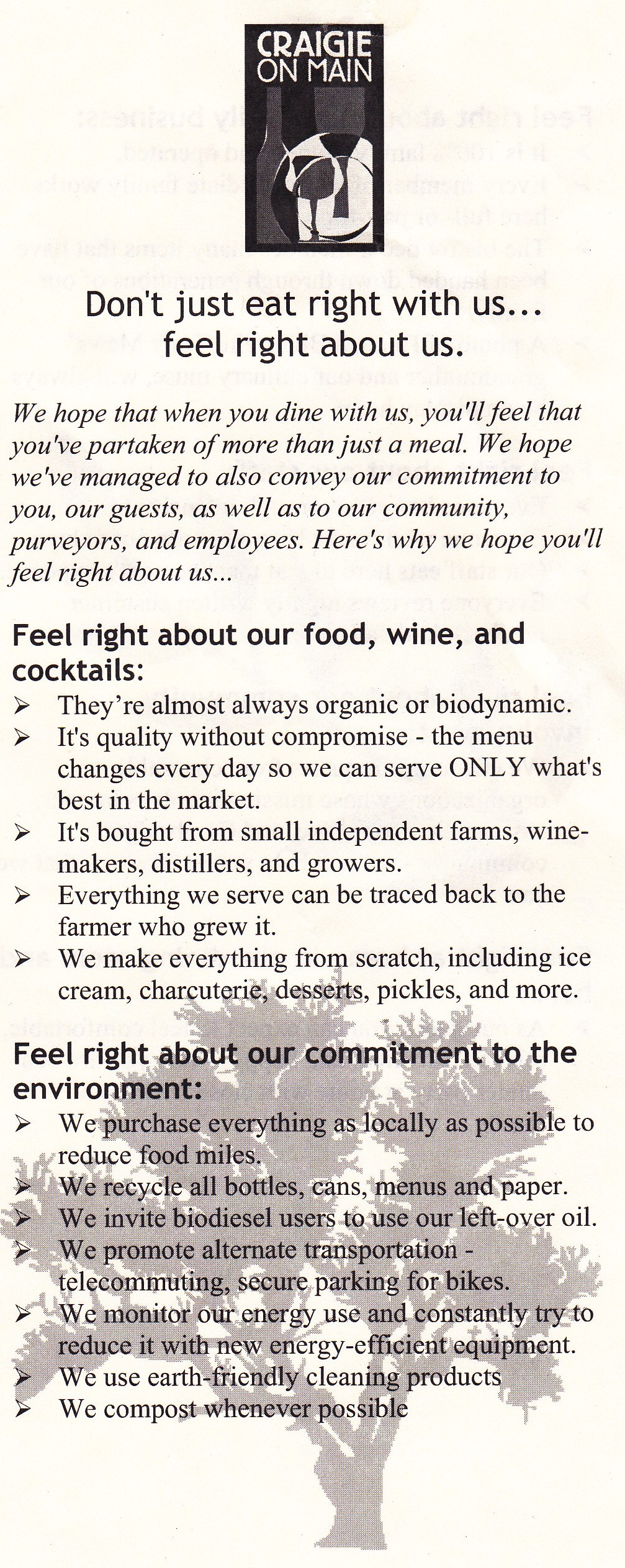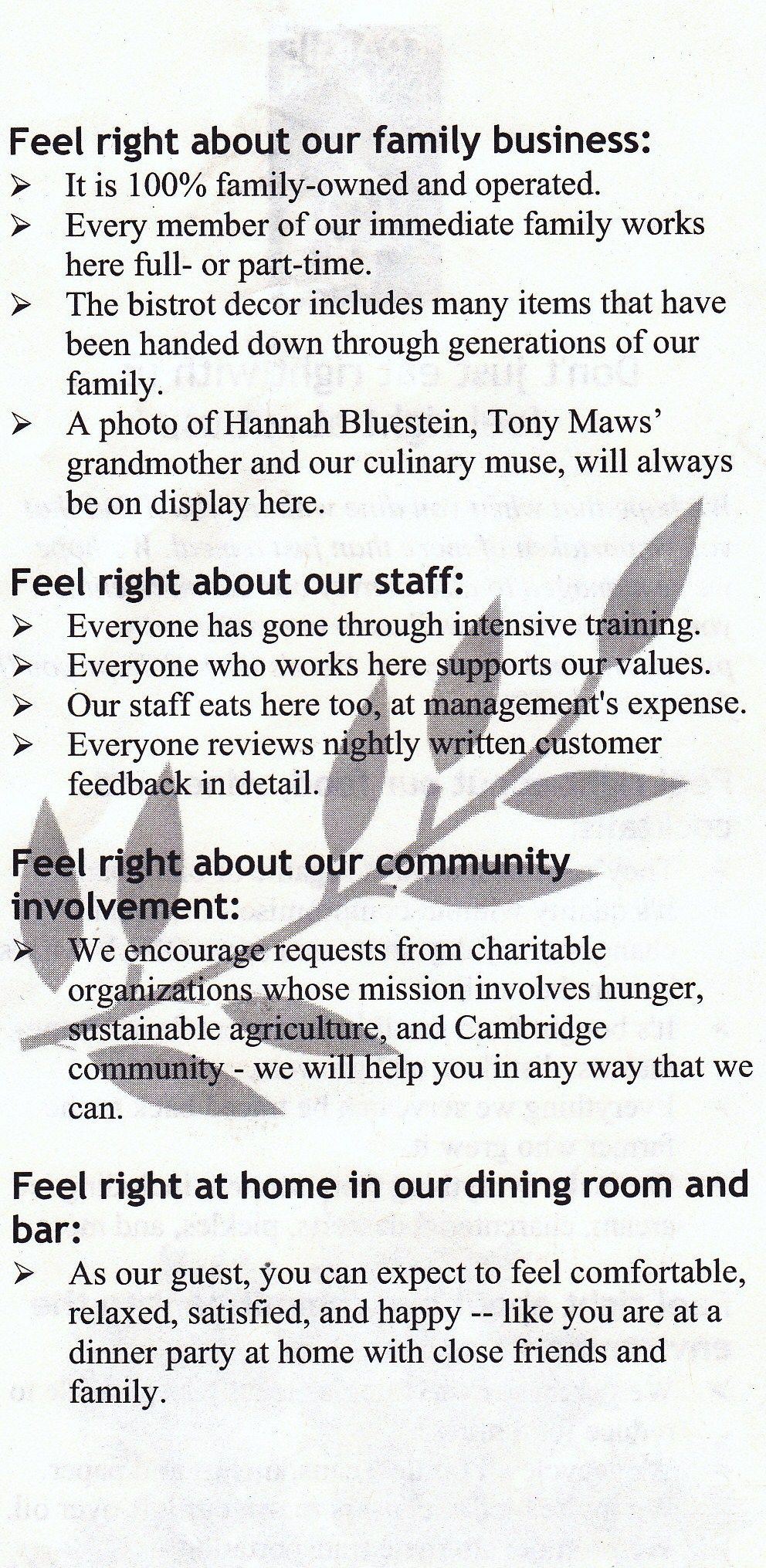It's Too Late to Be a Pessimist
/This week I jumped into the 2nd year of my MBA with a weeklong, intensive course called "Global Sustainability". A relatively new offering at Boston University, the course promised to cover a broad spectrum of ideas and questions relating to sustainability:
"Global Sustainability" explores the underpinnings of today’s global sustainability challenges and how entrepreneurial thinking can be applied to government, NGOs, multinational corporations, small startups and the capital markets to address these challenges...Students will gain deeper understanding of both root cause, the interconnected and interdependencies across sectors such as energy, the environment and the global food and water supplies along with entrepreneurial thinking, methods, models and practices being employed by innovative individuals and organizations at the forefront in the search for solutions.
While that description does scratch the surface, over the last week my class covered an incredible amount of content:
- History's impact on today's world, including the Industrial Revolution and classic economic theory (ala Adam Smith)
- Population growth over time, the expected explosion, and the effect population has on every other aspect of our lives (with an amazing look at the World3/Limits to Growth Simulator)
- Water usage, future concerns over supply, and the conflict that has arisen (even in the U.S.) over who controls precious water supplies
- Agricultural practices and policies around the world, as well as the issue of famine in developing countries and obesity here in the U.S.
- Environmental Policy, specifically the Kyoto Protocol and the Waxman-Markey Bill currently being debated in Congress
- Current uses of Energy and the technological innovations taking place in renewable sources like wind, solar, and biofuels (hint: this is a great business to get in to!)
- Migration into urban areas due to climate change and the resulting tensions that arise when too many people live one space
- Corporate involvement in sustainability, including the cases of WalMart and Millipore
- Exploration of the economies of BRIC countries - Brazil, Russia, India and China - and how they are addressing sustainability issues
- The paper and pulp industries, including a look at International Paper
- Public Policy strategies for creating change, including the importance of stakeholder analysis
- Social entrepreneurship as a means for grass-roots change, with an inspiring look at one entrepreneur who's seeing an opportunity, not a problem in Peru.
It was an amazing week of learning, and while I can't possibly reproduce it here on The Changebase, I did want to address one major takeaway from my time in class. And, oddly enough, it starts with a confession:
Until this week, I tried to pretend that sustainability wasn't "my" problem.
Now, let me explain. It wasn't that I didn't know our water resources were scarce, our livestock was factory farmed, or our environmental resources were being depleted. I did. And, when I had the courage, I tried to inform myself and be a conscious and responsible consumer. But that's just it: when I had the courage.
Case in point: this summer, convinced I needed more information, I bought "Hot, Flat, and Crowded" by Thomas Friedman and began the arduous task of reading about how our world is on the wrong track. Over 6 weeks or so, I slogged through the first half of the book, absorbing information but feeling more and more depressed as I turned the pages. After a while, things got so heavy I just had to put it down. I know that at some point he starts talking about solutions, but I found myself so overwrought with concern and dread that I couldn't continue reading it. I still don't know what he proposes as our way out of this mess.
But this week in class, things changed. I couldn't get away from learning about where our planet and our people are headed. I couldn't escape the inevitable worry and fear that comes through being informed. And believe me, it's scary stuff. Just a few statistics:
- The International Panel on Climate Change predicts that by 2080, 33% of the world's coastal wetlands will be eroded and become open water. What happens to the millions of people who benefit from the water, food, and livelihood these coasts provide? Where will they go (hint: urban areas) and what strain will that put on our world's cities? 2080 may seem far away, but believe me, this is our problem to address now.
- I learned this week that water, food, and energy are inextricably linked. For example: While globalization has led to an increase in standard of living for many people worldwide, it also accounts for an increase in meat consumption in people's diets. Amazingly, it takes 7 times more water to produce 1lb of meat than 1lb of grain, and yet, demand for meat in countries like China and India is expected to rise by 25% by 2015. If we look at the U.S. alone, it's not surprising that Confined Animal Feedlot Operations (CAFO's) are so prevalent, especially given how cheaply we want to buy our meat. But at what cost?
- Population growth and the strain it puts on our natural resources is perhaps our greatest concern: in the 1950's, there were 3 billion people worldwide. Today, there are roughly 6 billion. By 2050, world population is expected to grow to 9 billion. Just think of how these 9 billion people will use and deplete our planet's resources.
Yes, these statistics (and the questions they raise) are scary - and like me, I'm guessing a lot of people would rather pretend that these issues are not their problem. After all, it's easy to go about our daily lives, using all the water and energy we want and not really thinking about the consequences. Plus, I thought to myself, "if the world is on such a depressing and irreversible track, how can I really do anything to have an impact on the problem?".
Thankfully, my professors (Paul McManus and Kristen McCormack) knew that by the end of the week, we'd be looking for answers to this question. And so they left us with a clip from this video, entitled "Home", that I'd like to share with you too.
(Ashley's note: unfortunately it's not currently possible to embed the movie so I've instead embedded the trailer. If you visit here, you can see the entire video. Also, while the whole movie is worth watching, I suggest you fast-forward to around 1:16:00 - in the final 15 minutes of the movie they really do a terrific job of summarizing the issues and inspiring us to make change. Sorry for the technical difficulties - but trust me, it's worth the effort.)
As the narrator in the movie suggests, in fact "it is too late to be a pessimist". We must act, and we must act now.
It is everyone's responsibility to make changes in our behavior, in our lifestyles, and in our beliefs about the world and how we use it. Yes, it's scary. Yes, it's easier to pretend it's not my problem. But it is my problem, and yours too. I encourage you to also have the courage to inform yourself, and then ask: "What can I do to inform others?".
In addition to the links above, here are a few other terrific resources to learn more about global sustainability issues:
- Gapminder.org: Wondering how countries stack up according to themes like population, energy, disease, education or transportation? This is a fascinating site and definitely worth checking out (After checking out the homepage, click on Gapminder World to get started).
- Worldmapper.org: Like Gapminder, this site is an amazing illustration of the disparities and differences that exist between countries.
- Limits to Growth: A 30-year Update: Learn more about how three scientists staked their reputations on an unpopular and pessimistic (but increasingly realistic) view of our world's future.
- Monsanto: Whether you're for or against genetically modified crops, Monsanto is a powerful force in agriculture today that everyone should know about.



